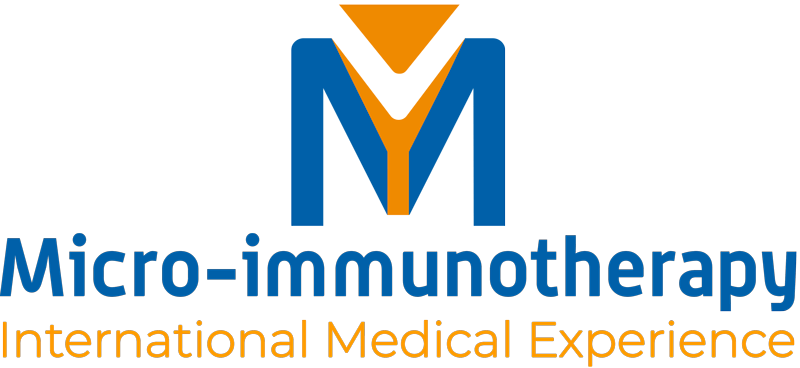With menopause begins the process of immunosenescence (immune ageing), whereby the immune system’s ability to react starts to diminish, thus increasing the susceptibility to infections, the harmful effects of stress and the risk of autoimmune processes. Changes in the microbiota and sleep patterns are also characteristic of this phase in a woman’s life.
Below you may find the importance of a healthy lifestyle and micro-immunotherapy as an immunoregulatory treatment to counteract the often overwhelming symptoms occurring during and after menopause due to hormonal changes.
Main symptoms of menopause
While some women hardly notice any symptoms, others struggle. Each woman experiences menopause differently. Menopause usually begins at the age of 45-55. The most common symptoms / signs of menopause symptoms are:
The benefits of micro-immunotherapy to counteract immune aging
As is known from psychoneuroendocrinoimmunology, the hormonal, the nervous and the immune system are constantly communicating with each other through the hypothalamus-pituitary-adrenal axis (HPA). Thereby, any change in one system will affect the other.

In women, the hormonal restructuring that takes place during menopause can lead to an increase in cortisol, the stress hormone. In turn, it is known that the process of immunosenescence (aging immune system) entails changes that resemble those occurring in chronic stress, including the overactivation of the HPA axis and a proinflammatory, potentially chronic inflammatory state (inflammaging) of the immune system. This comes with an imbalance in glucocorticoids, namely between DHEA (“anti-ageing” hormone with an anti-inflammatory and neuroprotective role) and cortisol, which acts as an immune suppressor. If sustained over time, the conditions associated with inflammaging, including cortisol excess, can be involved in the onset of various diseases such as autoimmune diseases, which are more frequent among women than men.
During menopause and postmenopause, supporting hormonal balance by regulating the immune system helps prevent the onset of diseases that may result from the process of senescence (reduced immune function) that goes on as we age. Micro-immunotherapy can be of great help as an immune support during after menopause, promoting immune system health and healthy ageing as it communicates with the tightly interconnected immune and hormonal systems through low doses of messenger substances. It thus equilibrates the factors leading to cellular ageing such as chronic exposure to endogenous glucocorticoids.
Regulating your immune system during menopause
For a healthy menopause, with strong defences, a healthy lifestyle is the best option to minimise the impact of the hormonal fluctuations on immunity and physical and psycho-emotional well-being. As part of menopause treatment, the following measures can be of great help to cope with the immune and hormonal imbalances without having to resort to hormone replacement therapy:

- Balanced diet provides all the macro and micronutrients your body needs (vitamins, minerals and trace elements).
- Avoid sugars, fats, and alcohol and drink sufficient water.
- If you are undergoing stress, it is important to bring in moments of relaxation into your day-to-day life to reduce its harmful effects on the immune system.
- Improve your sleep hygiene
- Exercise regularly despite the fatigue
- Regulate immunity and support hormonal balance with micro-immunotherapy.
Are you a healthcare professional? Haven’t registered to our Professional Area yet?
If you are a doctor, a member of a specialist medical group or a therapist take this opportunity to request free and non-binding access to our professional area and enjoy additional content of our online media library
Discover more about menopause, women’s health and micro-immunotherapy for age-related diseases by contacting us at micro-immunotherapy@micro-immunotherapy.com
